Ensure it’s clean, dry, and level.
Reach out for efficient, cost-saving, and luxury Vinyl floor heating.


With decades of hands-on experience, we've honed our craft to become leaders in the heated floor industry. Trust in our expertise to deliver solutions that truly stand the test of time.

For our heated floors, we carefully select and offer only the best products. With GWD you're investing in durability, efficiency, and cutting-edge technology.

We're committed to providing top-tier heated floor solutions at prices that are competitive and fair. No compromises, just the best value for our valued clients.

Our team of highly skilled installers ensures that your heated floor system is set up seamlessly, with precision and care. Experience excellence from the ground up with our expert installation crew.
Delving into the world of radiant underfloor heating, there are two primary contenders: electric and hydronic systems. Both come with their unique set of benefits and challenges, ranging from installation complexities to maintenance needs.
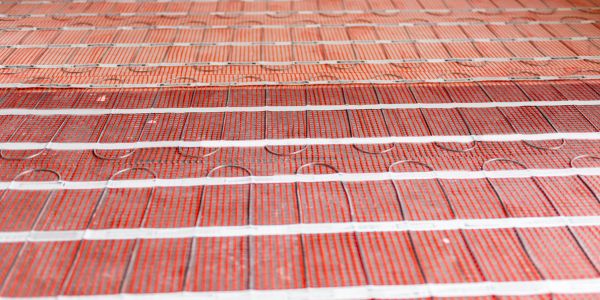
Electric Radiant Underfloor Heating systems utilize electric resistance cables or mats to produce heat.The electric cables or mats are spread out and fixed across the floor, and once activated, they directly heat the floor surface above. Electric systems are inherently more reliable than hydronic systems as they have no mechanical or moving parts that could break down. The installation process is also much quicker and simpler, and there is no required maintenance.
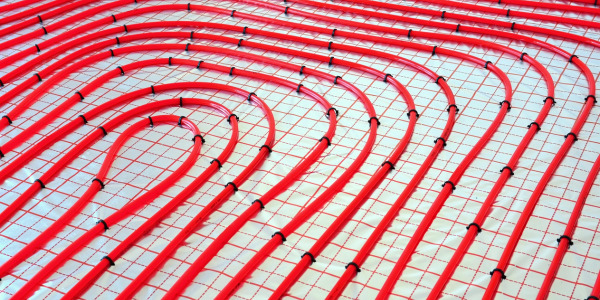
Hydronic systems use a series of tubes laid beneath the floor into which warm water from a boiler circulates, producing radiant heat. They are typically more complex and expensive to install compared to electric systems and have a much higher likelihood of breaking down and need of repair. Hydronic systems also require regular maintenance unlike their electric counterparts.
Vinyl flooring combines versatility with affordability, making it a go-to for many homeowners. Before diving into installation, it’s crucial to understand the associated costs and variations.
| Vinyl Flooring | $3-7/ft² |
|---|---|
| Plus | |
| System Cost | $14/ft² |
| Plus | |
| Installation Cost | $8-20/ft² |
| Plus | |
| Subflooring Replacement Costs | $3-10/ft² |
| Plus | |
| Underlayment Costs | $0.50-4.50/ft² |
| Total | |
| Low End Estimate | $28.50/ft² |
| Upper End Estimate | $55.50/ft² |
Same as New Build
Plus
Removal of Old Flooring = $1.50-3.50/ft²
Same as New Build
* Retrofitting entails placing the heating component between the floor joists from underneath the room. This method doesn’t necessitate changing the completed floor; however, it does demand access from an open ceiling below the room. If there’s an existing finished ceiling, like drywall or plaster, it will have to be taken down to access the joists.
Heated vinyl flooring offers a blend of practicality and warmth. For a seamless and efficient installation, it’s crucial to follow specific steps.
From subfloor preparation to the all-important final checks, here’s a breakdown of the key stages for setting up a heated vinyl floor.
Ensure it’s clean, dry, and level.
Decide on the layout and spacing.
Prevent heat loss and direct warmth upwards.
Follow the planned layout.
Ensure a safe electrical connection.
Adhering to manufacturer’s guidelines.
Re-test the system post-installation.
Yes. Vinyl flooring has gained popularity due to its versatility, ease of maintenance, and wide range of designs. Both electric and hydronic radiant heating systems are compatible with vinyl floors.
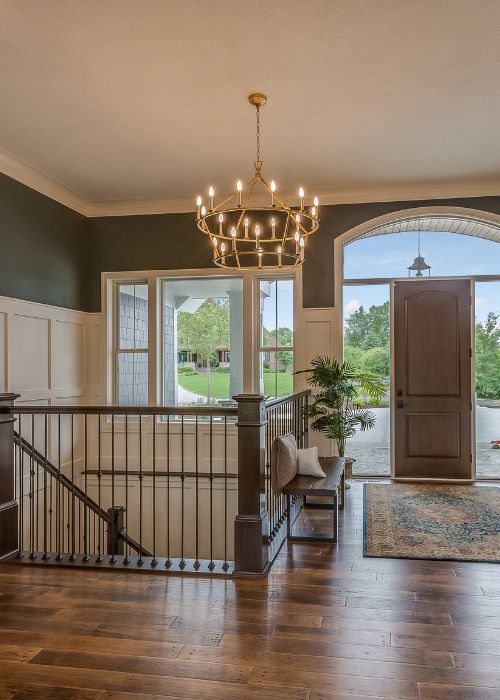
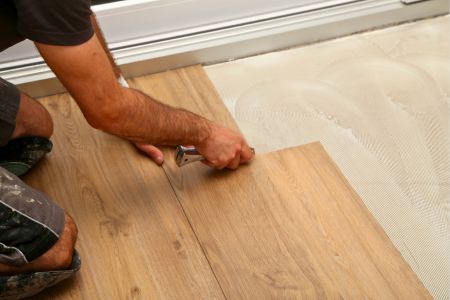
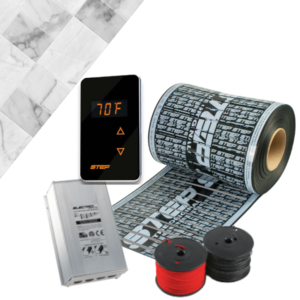

No. The electric heat mats we use have been deliberately designed for compatibility with vinyl plank flooring.
Yes. Our electric radiant heat mats are entirely compatible with LVT.
When installed and maintained correctly, underfloor heating will not adversely affect the lifespan of vinyl plank flooring.
While many vinyl flooring types, including LVT and LVP (Luxury Vinyl Plank), can be used with radiant heating, the specific product’s quality and the manufacturer’s guidelines play a significant role. Thicker vinyl with a robust wear layer often handles heat better. Always consult product specifications.
The only other additional cost you are likely to encounter when installing radiant heated floor systems is for floor insulation. This can be required for retrofits, remodels or new build projects but only in certain scenarios, such as rooms that are located above an unheated room or rooms that are on concrete slabs.